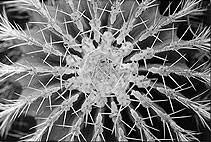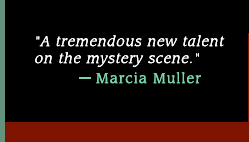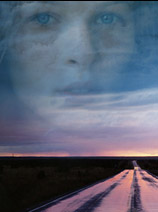 |
 |
 |
 |
 |
LOUISE URE on writing FORCING AMARYLLIS The main character in FORCING AMARYLLIS, Calla Gentry, is a jury consultant. Have you ever been a jury consultant yourself? No, But I've sure served on a lot of juries! I live in San Francisco now, and it seems that my name gets drawn every year for jury service. The last time I served -- this was on a drug possession charge -- I kept wondering why the defense lawyer was selecting some people for the jury and eliminating others. It didn't make logical sense to me. So I tried to imagine how I would evaluate each jury candidate if I were trying to get my client off. Could this woman have a son about his age? Why does this man look down when answering questions and never look me in the eye? I became fascinated with the psychology of picking jurors. Does jury consulting have any parallels with your previous profession -- advertising? I was in Account Management at the advertising agency and that's the more strategic and business end -- not the creative side. But we did a lot of research and the more I looked into it, the more I realized that trial consultants -- jury consultants -- use the same tools and techniques that I'd used in advertising and marketing for twenty-five years. Sure, they were selling a defense, a point of view, or a strategy rather than a product. But they were still trying to get someone to buy something. Surely, selling beer and defending a murderer are two different things. Of course they are, but the research techniques are the same. Just think about it. In marketing and advertising we have to define the target audience -- figure out which people are most likely to buy the product. That's the same thing a jury consultant does. He finds the juror who is most likely to agree with his client's story and point of view. Jury consultants do focus groups and telephone surveys to gauge consumer awareness and to test strategies. They conduct mock trials to see how the message is playing to the audience. That's what I did in advertising, too, except there the respondents were discussing television commercials for the Dancing California Raisins or long distance phone companies. In the trial consultant's world the stakes are higher. Is this the beginning of a Calla Gentry series? I didn't think of this as a series as I was writing it, but Calla is a strong, smart woman in a fascinating field, and that kind of person usually has lots of interesting stories to tell. Who knows? Do you think you'll still be picked for juries if you tell the attorneys that you've written a book about a jury consultant? I may keep that information to myself. There's no better place to people watch and come up with story ideas than a courthouse. One character in your novel drives a vintage Shelby Mustang. Is there special significance in that? My husband and I race Shelby Mustangs from the 1960's. I wouldn't be surprised to see a vintage racecar somewhere in everything I write. Kind of like Alfred Hitchcock's cameo appearance in each of his movies. The desert Southwest features prominently in your work. Have you spent much time there? I'm a fourth generation Arizonan and have always thought the desert was a magical place. Writing about it gives me the chance to appreciate it all over again. This is the first writing you've ever done. That's true. I've never done any creative writing before, unless you want to count a couple of particularly imaginative IRS submissions at tax time. But I have always been an avid reader -- I probably read two or three books a week, mostly mysteries and contemporary fiction. In kitchen terms, I was an appreciative eater, but I'd never learned to cook. How did you start writing this? To learn the basics, I enrolled in an evening class at a local bookstore. The instructor, Judith Greber (who also writes under the name of Gillian Roberts) taught me to both read and write with an analytic eye. And then to temper that analysis with writing that comes from the heart. Do you have any advice for other beginning writers out there? The hardest advice of all is Just sit down and do it. I have a quote from Elizabeth Hay's A Student of Weather taped to my computer. It says "Interruptions. Timidity. Bad Temper. Loss of nerve." She was writing about an artist's difficulty in getting to work, but they're the same four excuses that I use for not sitting down to write every day. So every morning I try to figure out which one of the four excuses is bothering me the most, and then put it behind me and start writing. And that's when I use the second quote that's taped to the computer monitor. It's from Hemingway's A Moveable Feast. It just says: "Write the truest sentence you know." |
  |